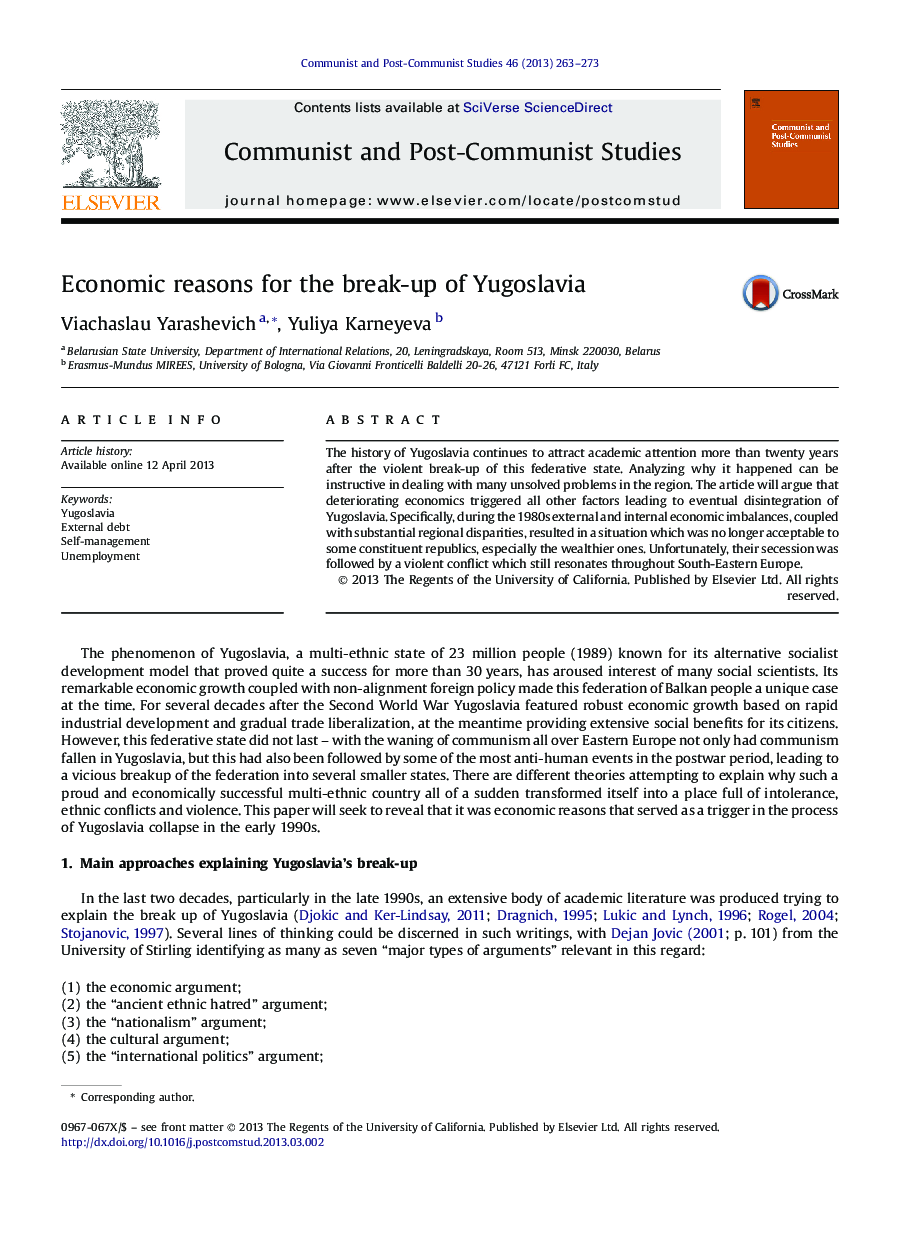| Article ID | Journal | Published Year | Pages | File Type |
|---|---|---|---|---|
| 1046568 | Communist and Post-Communist Studies | 2013 | 11 Pages |
Abstract
The history of Yugoslavia continues to attract academic attention more than twenty years after the violent break-up of this federative state. Analyzing why it happened can be instructive in dealing with many unsolved problems in the region. The article will argue that deteriorating economics triggered all other factors leading to eventual disintegration of Yugoslavia. Specifically, during the 1980s external and internal economic imbalances, coupled with substantial regional disparities, resulted in a situation which was no longer acceptable to some constituent republics, especially the wealthier ones. Unfortunately, their secession was followed by a violent conflict which still resonates throughout South-Eastern Europe.
Related Topics
Social Sciences and Humanities
Social Sciences
Development
Authors
Viachaslau Yarashevich, Yuliya Karneyeva,
